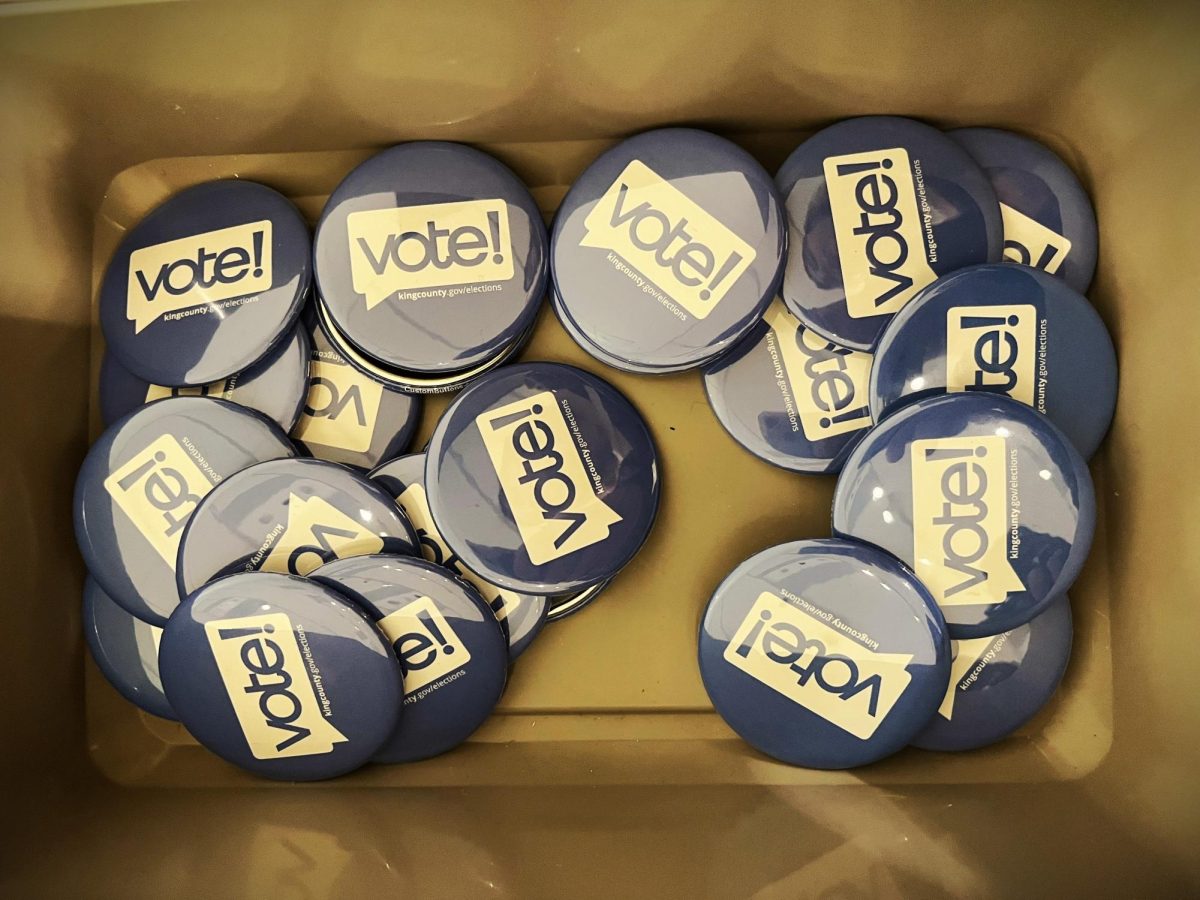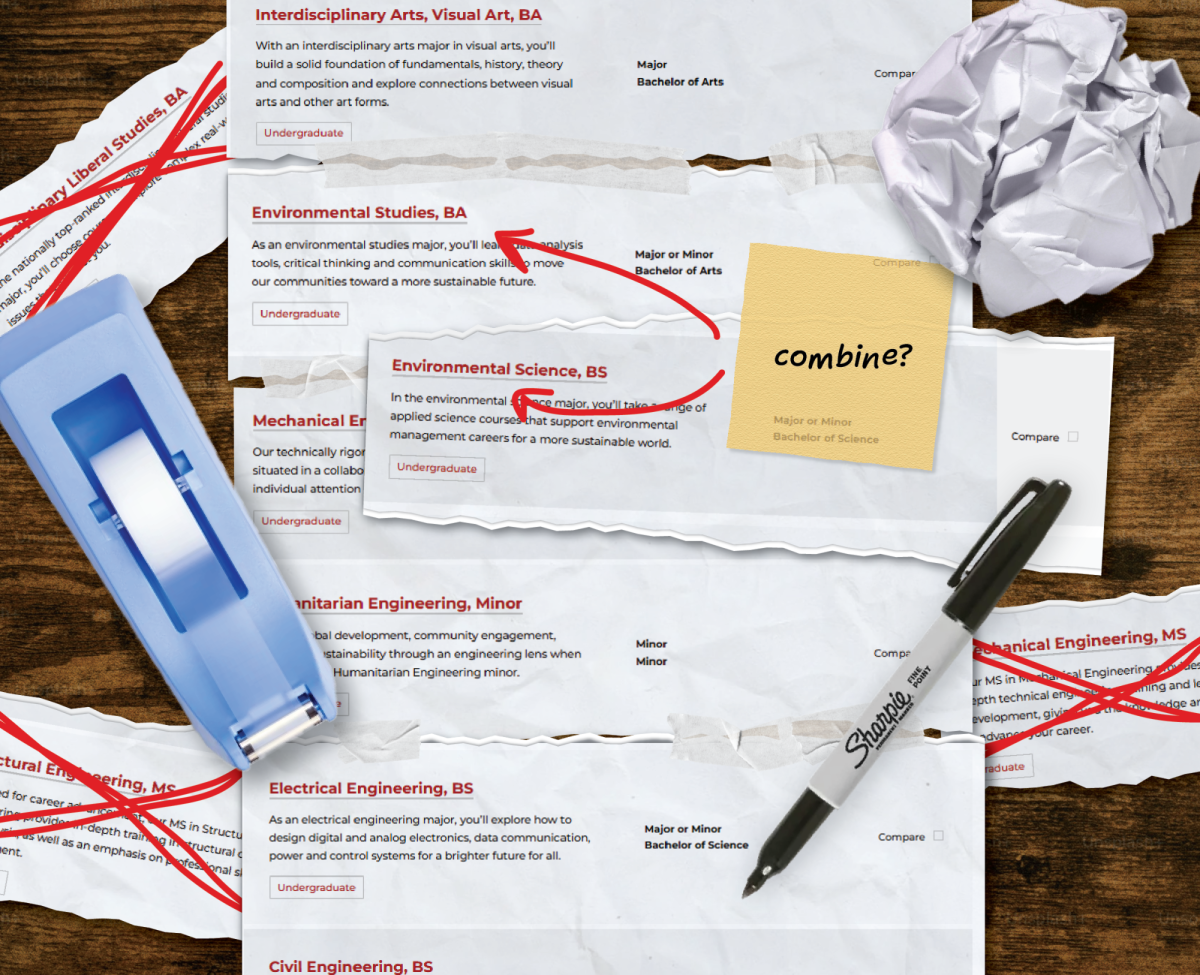With Election Day rapidly approaching, headlines of the Trump v. Harris presidential race are dominating the news cycle. While many voters are focused on selecting the next U.S. president, Washingtonians will also vote on four ballot initiatives, along with federal and state candidates.
The four ballot initiatives are detailed below. More information on the proposals can be found in the King County voting guide. A list of both federal and state election candidates are also provided.
Initiative Measure No. 2066
This initiative exists in response to changes last year in the State Building Code Council energy policy, which severely limited natural gas line hookups in newly built homes. It also responds to the passage of House Bill 1589 (HB 1589), which required combination gas and electric companies that serve more than 800,000 customers to plan for actions “supporting gas system decarbonization and electrification.” This is part of the state’s goal to move toward 100% clean energy.
If this initiative passes, Washington utilities would have to provide natural gas to any person or business that requests it. It would also make the Washington Utility and Trade Commission unable to pass multi-year utility rate plans that incentivize or require terminating natural gas.
Supporters of 2066 argue that the state’s restrictions on natural gas will lead to increased construction costs and increased utility costs for restaurants. They also fear that Washington is moving toward a full ban on natural gas, and view this initiative as a way to change course. HB 1589 does not ban natural gas, but it requires Puget Sound Energy to assess and plan for ways to transition fully to electric in certain areas such as heating.
Opponents of 2066 view natural gas as an inefficient and cost-ineffective form of energy, and view the initiative as a way to prevent progress toward clean energy in the state. They argue that this initiative locks the state into getting energy from oil and gas companies.
Initiative Measure No. 2109
Initiative 2109, if passed, will repeal the 7% excise tax imposed on the sale or exchange of long-term capital assets by individuals who have annual capital gains of over $250,000. The capital gains tax applies to certain types of capital assets held for a year such as stocks, bonds, precious metals, artwork and investments. The tax does not apply to the sale of other assets such as real estate, retirement savings accounts, breeding livestock, property that is depreciable, commercial fishing privileges, timberland or timber.
The state of Washington imposes several taxes to raise revenue for the state government. Those taxes include retail sales tax, the business and occupation tax, the state property tax and other state taxes. In 2021, Washington state legislature passed legislation establishing a capital gains tax. It officially took effect Jan. 1, 2022. In 2023, the Washington State Supreme Court ruled that the capital gains tax was an excise tax and did not violate the constitutional prohibition on income taxes.
Proponents of the initiative argue that this initiative would benefit all of Washington, fostering job creation and state-wide economic growth.
Opponents of this initiative put forth that the initiative benefits those who are already wealthy, and that it would directly take money from educational resources, early learning and childcare.
Initiative Measure No. 2117
If passed, Initiative 2117 will prevent state agencies from imposing any carbon tax credit trading systems in the future. Passing the initiative would also repeal Washington’s existing carbon tax system, the Climate Commitment Act (CCA).
The CCA, which was passed in 2021, set an emissions limit for some of the largest greenhouse gas polluters in Washington. This leaves high-polluting companies with two options: to either comply with the cap and reduce emissions, or pay for “carbon credits” to offset the pollution they create that is over the cap. The revenue earned from the carbon credits then is invested into climate-related policies and projects across the state. In 2023, the CCA raised $1.8 billion to fund its initiatives.
Those in favor of passing Initiative 2117 argue that the CCA has caused the price of gas, energy, and other goods to rise. Proponents put forward that the CCA is not producing the environmental results that were originally promised, and that other climate initiatives could be more effective.
Those against passing the initiative argue that the CCA is not the reason gas prices have gone up, and that repealing it would not meaningfully decrease the price of gas and other goods. Opponents also believe that the program is effective in helping combat climate change.
Initiative Measure No. 2124
Initiative 2124 seeks to reform Washington state’s insurance program, WA Cares. Currently, most employees are required to contribute 0.58% of their wages to the fund, and in turn, after paying in for 10 years, can access up to $36,500 (adjusted to inflation) for long-term care costs when they need it. The initiative would allow employees and self-employed individuals to opt out of the program at any time, and require those in the program to decide whether to opt out or continue. It would also remove a currently existing exemption for those who had private long-term care insurance before November 2021.
Proponents of the initiative argue that it increases choice for citizens who would prefer private insurance. They also put forward that the existing payroll tax is placing a burden on those who might already be struggling, and that the benefit the existing tax provides is inadequate.
Opponents fear that people opting out of the program would leave it without enough money to support those who rely on it, and that private insurance is not a viable option for a majority of the population.
Candidates on your ballot:
Federal:
U.S. President & Vice President
Kamala Harris & Tim Walz (Democratic)
Donald Trump & JD Vance (Republican)
Robert Kennedy Jr. & Nicole Shanahan (We The People)
Jill Stein & Rudolph Ware (Green)
Claudia De la Cruz & Karina Garcia (Socialism and Liberation)
Rachele Fruit & Dennis Richter (Socialist Workers)
Joseph Kishore & Jerry White (Socialist Equality)
Chase Oliver & Mike ter Maat (Libertarian)
Cornel West & Melina Abdullah (Justice For All)
Shiva Ayyadurai & Crystal Ellis (Independent)
U.S. Senator
Sen. Maria Cantwell (prefers Democratic)
Raul Garcia (prefers Republican)
Congressional District 7, U.S. Representative
Rep. Pramila Jayapal (prefers Democratic)
Dan Alexander (prefers Republican)
State:
Washington State, Governor
Bob Ferguson (prefers Democratic)
Dave Reichert (prefers Republican)
Washington State, Lt. Governor
Denny Heck (prefers Democratic)
Dan Matthews (prefers Republican)
Washington State, Secretary of State
Steve Hobbs (prefers Democratic)
Dale Whitaker (prefers Republican)
Washington State, State Treasurer
Mike Pellicciotti (prefers Democratic)
Sharon Hanek (prefers Republican)
Washington State, State Auditor
Pat (Patrice) McCarthy (prefers Democratic)
Matt Hawkins (prefers Republican)













